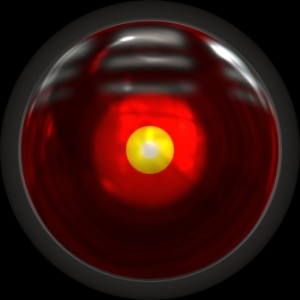 I had not heard the term disruptive technology. Please tell me I am not alone.
I had not heard the term disruptive technology. Please tell me I am not alone.
My image upon hearing the term is far from its true meaning.
I imagined technology revolting and taking over in HAL-like fashion.
Disruptive technology is unprecedented advancement in technology.
It transforms life and creates new markets from traditional markets.
- That doesn’t sound very HAL-like
- Then again, who knows what HAL would have done had he/it succeeded
This self-professed Pollyanna word nerd finds the term extremely negative.
- Is that what change is?
- Disruptive?
I suppose it is but I prefer alternative descriptions.
- Transforming
- Progressive
- Enlightening
I would have said innovative until the world beat that word to death.
Perhaps that’s the problem. We’ve run out of words and disruptive was a leftover.
The same people who transformed notoriety from being known for all the wrong reasons to meaning “famous” probably had a hand in the disruptive label.
Disruptive Technology?
We can blame…er…credit Harvard Business School professor Clayton M. Christensen for the term.
His 1997 best-selling book, “The Innovator’s Dilemma,” classifies new technology into two categories – sustaining and disruptive.
Sustaining technology is life support for existing technology. It keeps the technology alive with small, cumulative changes.
Disruptive technology rocks the boat. It is the rebel with a cause. A revolutionary. I guess that’s a more positive spin.
Who am I to argue with a Harvard professor? Especially one called the World’s Top Management Thinker.
Want some examples of so-called disruptive technology?
- The personal computer knocked out the typewriter
- Cell phones took a stab at Ma Bell
- Smartphones are kicking cell phones to the curb
From the perspective of the replaced technology, I suppose that is disruptive.
One person’s disruption is another person’s advancement.
This Pollyanna still prefers a more positive spin on change.
=================
Live…Laugh…Love
=================
Hmmm… I’ve been aware of the term for a couple of years and I like it. I remember when I first managed to get html, the programming language of the web, to display my name on the screen… that took most of the day you understand. As I looked at my name I realized the web was another and a new publishing medium… disruptive for sure, altho’ that term wasn’t used them.
I think I see disruption as a neutral word that can be positive, negative or anything in between.
The printing press and the airplane and cars, have all been disruptive.
Isn’t it interesting how certain words have a different impact on each of us? I agree that disruptive can be positive, negative or anything in between but for me, my knee-jerk is negative. 😉
Thanks for a different perspective, Anne.
Cathy, I’ve heard the term “disruptive” being attached to all sorts of positive events. And yes, my brain still registers “bad thing” when I hear the word. “Disruptive event in the market that spurs growth.” Huh?
It may take a while for our heads to wrap around that kind of gear shift. Or not. Could be the term is just the fad-of-the-day variety and will die out quickly. I hope so. It could take the “paradigm shift” right along with it.
Well, I guess it’s been around since my research unearthed Professor Christensen’s 1997 book that coined the phrase. I guess since I don’t typically travel in the Harvard world, I missed that one. 😉
P.S. I HATE paradigm shift. I didn’t even like it the 1st time I heard it. 😉 Different strokes for different folks, I guess. 🙂 Thanks, Lori.